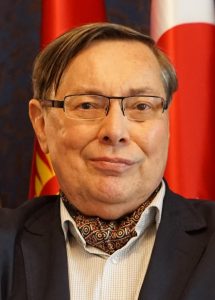Dear Reader,
The end of the Cold War is not even an event of the recent past anymore as it is already one generation away. With increasing distance, the memory of this time either fades away or, for the younger members of the PIAC family, is not even accessible by personal experience anymore. Until recently, the general perception was that travel, exchange, exploration and scholarly field work had reached a new and hitherto unseen level of openness and ease. Yet, the PIAC was born during the Cold War and had to negotiate her path during the first 30-odd years of her history.
In sight of new geopolitical rivalries and tensions it must be thoroughly understood that the comparative ease and freedom of exchange and movement wo could enjoy during the last three decades is fragile rather than robust and should not be taken for granted and carved in stone. Quite to the contrary, it is necessary to understand the historical background of the PIAC in order to be able to appreciate the scholarly exchanges the PIAC managed to conduct in the first half of her history.
in May 2024, our colleague Kinga Szálkai published an interesting article on these issues of the history of the PIAC, focussing of the environment of and opportunities for scholarly exchange and work during the Cold War. The article is part of the The Palgrave Handbook of Non-State Actors in East-West Relations, the full citation is:
Szálkai, K. (2024). The Permanent International Altaistic Conference. In: Marton, P., Thomasen, G., Békés, C., Rácz, A. (eds) The Palgrave Handbook of Non-State Actors in East-West Relations. Palgrave Macmillan, Cham. https://doi.org/10.1007/978-3-031-05750-2_81-1.
The abstract of the paper is available under the DOI stated in the citation.
Oliver Corff
Secretary General
July 19, 2024

